Mining activity on the Olifants River
By guest blogger Stella Horgan from Zingela Ulwazi
Last week, Becky Harmon and I joined the facilitation team for Changing Practice, a Rhodes University accredited course for environmental activists, under the ELRC (Environmental Learning Research Centre), facilitated by EMG. This is the Civil Society Support Initiative aspect of AWARD’s (Association for Water and Rural Development) RESILIM-O program which is focussed on building resilience in the Olifants River Catchment. Funded by USAID, EMG has a sub-grant to run this program.
There were 16 participants from 7 CSOs (Civil Society Organisations), each doing extraordinarily challenging work in the catchment. This ranges from representatives of an informal settlement in eMalahleni addressing toxic waste management practices in the mining industry, to boreholes drying up as a result of mining activity and livestock being poisoned by contaminated water in a mine’s discharge channel in Sekhukhune. Two projects are focussed on food security and assisting communities to grow their own organic food using permaculture principles. Others on a devastated wetland in eMalahleni and on the problem of disposable nappies.
Changing Practice: Olifants Catchment is in its second year and participants have made great progress and experienced significant growth. Ordinarily, we meet in eMalahleni, the coal mining capital of South Africa, a bleak and apocalyptic place where environmental destruction is rampant. The air is filthy and we often leave with headaches, feeling sick. Another of our modules was held in Burgersfort at a guest house whose staff were openly racist, which was a very uncomfortable and painful experience for us all.
This time we took a risk and found a venue on the Olifants River in Balule Reserve in Kruger Park. We felt that being in nature and seeing the Olifants River in a natural system would be an important and nourishing experience for participants. Struwig Eco Reserve is a camp build for youth development right on the Olifants River; the staff are passionate about nature and did a superb job of welcoming us. Like many good things in life, getting 22 people from around the catchment, the Eastern and Western Cape, was a complex job! From Phalaborwa to the river, you drive through 16km of Foskor Mine, a shock to the system in terms of a landscape utterly destroyed for commercial gain.
Then the river crossing. Suddenly everything softens as one leaves the industrial space and floats slowly to the bush, amongst the birds and antelope starting to appear on the banks. We know that the Olifants River is absolutely toxic from industry, agriculture, dysfunctional waste water treatment systems and litter, but there is a love for this river, knowing how much life and livelihood it supports.
On our first freezing early morning game drive we encountered a hyena with her cub. They jogged out of the bush right in front of our vehicle so that we could see them in stark detail. The mother then picked her cub up in her mouth and loped off. We were all absolutely silent at the extraordinary sighting. I was reminded of myth around hyenas, describing them as beings who are unafraid to go into the darkness to clean up so that the lion can shine its golden light. I shared this with the participants as I believed this sighting to be significant, as they confront so much darkness in the corrupt world of large mining corporations and unresponsive government.
On our third day we came across a magnificent male leopard who strolled through the soft morning light and allowed us to see his every detail. Again we were arrested by his beauty and regality. I suggested we take this in and inhabit our own regality, something we neglect to do as we submerge ourselves in our daily tasks.
The workshop was guided by the question ‘How do we transform?’ which we explored with fellow facilitators Jane Burt, December Ndhlovu, Jessica Wilson and Taryn Pereira. We looked at how we transform in ourselves, our communities, networks, human society and within nature-human existence. We dialogued, made art, learned how to be present. We also had excellent presentations from AWARD on the impact of the chemicals in the river on human health, and on how to engage with municipal IDP processes.
The participants have been working on their assignments which incorporate case studies of their work. These will be published shortly. To read more about the Change Projects, read the rest of the blog entries below.
A huge vote of thanks to all of the facilitators and participants for this wonderful work. May we be strong and may our world be led with integrity.









